Team
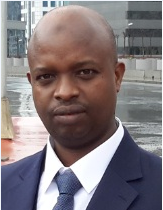
Dr. OMAR GATERA
Principal Investigator
OMAR GATERA received the B.Sc. degree in electronics and communication systems and the M.Sc.
degree in information and communication technology (ICT) from the University of Rwanda, in 2006
and 2008, respectively. He also received the Ph.D. degree in Telecommunication engineering from
Istanbul Technical University (ITU), Istanbul, Turkey in 2017. From 2008 to 2020, he was working for
the Rwanda Standards Board (RSB) where he was involved in standards development and conformity
assessment activities for electrotechnical sector. From November 2020, he is working for the University
of Rwanda, College of Science and Technology (UR-CST) as lecturer in the department of electrical and
electronics engineering and Head of PhD studies and research in the African Center of Excellence in
Internet of Things (ACEIoT). His research interests include wireless communication systems, Internet of things and artificial
intelligence.
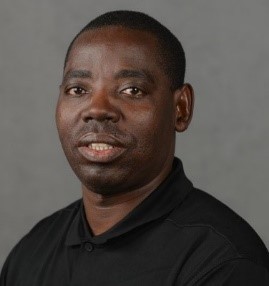
GERARD RUSHINGABIGWI
GERARD RUSHINGABIGWI is supervisor of postgraduate students in the University of Rwanda,
and a Senior Lecturer in the department of Electrical and Electronic Engineering (EEE), the same
University.
He is the leader of Biomedical Engineering Master’s Programme in the University of Rwanda’s
Regional Centre of Excellence in Biomedical Engineering and E-Health (CEBE).
Under collaboration between the University of Rwanda and Stanford Byers Center for Bio design,
Dr. Gerard Rushingabigwi was trained for six months at Stanford University under the 2023 Global
Faculty in Training (GFIT) program, on Bio design, from January to June 2023.
Having obtained the PhD in Electronic Science and Technology (Electromagnetism and Microwave
Technology) in June 2017, the Master of Science Degree in Computer Science and Technology in July 2010, and the
Bachelor of Science Degree in Electromechanical Engineering in December 2005, his focal research areas are grouped into
"Electromagnetic Compatibility in Biomedical Devices, Biosensors, BioMEMS as well as Remote Sensing Data Analysis for
Air and Water Polluting Aerosols."
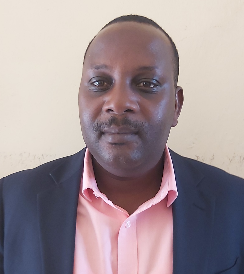
Prof. CELESTIN TWIZERE
CELESTIN TWIZERE received the BSc degree with honors in Physics from University of Rwanda
(former National University of Rwanda) in 2001, the MSc in Complex Electronics from Roma Tre
University in 2005 and the Ph.D. degree in Engineering of Biomedical Electronics, Electromagnetism
and Telecommunication at the University of Roma Tre, Rome, Italy in 2011.
Celestin Twizere currently serves as the Director of the East Africa Regional Centre of Excellence in
Biomedical Engineering and e-Health (CEBE), part of the network of East Africa’s Centers of
Excellence for Skills and Tertiary Education. A key strategy of CEBE is to position itself to operate
efficiently and effectively in an ecosystem of knowledge creation and transfer, academic and industry
partnership, and delivery of technical services to achieve high-impact results in support of several key health sector
initiatives, including medical equipment and devices, rehabilitation and mobility devices, and e-health system services. In
addition, Twizere is Associate Professor of Engineering of Biomedical Electronics, Electromagnetism and
Telecommunication in the department of Electrical and Electronic Engineering, University of Rwanda. With his
telecommunication engineering background (Ground Penetrating Radar, Wireless Communication and Networks,
Electromagnetic Radiation and Propagation, and Smart Antenna for Mobile Communication), his spectrum of work is broad
as he is collaborating in different projects in digital health as a main leader or co-leader. These include strengthening
research capacity and expertise in digital health, digitalizing the hospital patient trajectory and secondary use of EHRs in
Rwanda, and e-mental healthcare architecture as an innovative solution to conventional treatment in Rwanda.
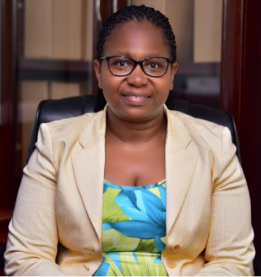
Dr. DIDACIENNE MUKANYILIGIRA
DIDACIENNE MUKANYILIGIRA is currently a Technology Innovation and Intellectual Property
Analyst at Rwanda National Council for Science and Technology (NCST and an honorary affiliate
lecturer in the school of ICT, College of Science and Technology and African Center of Excellence
in Internet of Things (ACEIoT) University of Rwanda. She received a BSc in Electromechanical
Engineering from Kigali Institute of Science and Technology (KIST), currently University of
Rwanda, College of science and technology (UR-CST). She holds a Master of Science Degree in
Information and Communication Systems from Huazhong University of Science and Technology
(HUST), China, and PhD degree in Electrical Engineering, research field of Telecommunication from
2
the University of Cape Town, South Africa. She supervises masters and PhD students in mobile communication, embedded
computing systems, and wireless intelligent sensor networking programs. Her research interest includes the application of the
Internet of Things and machine learning to find solutions to country-level challenges in a variety of fields, including health,
transportation, agriculture, Environment, etc.

Prof. BOLAJI N. THOMAS
BOLAJI N. THOMAS is a full Professor of Biomedical Sciences at Rochester Institute of
Technology, Rochester NY, United States. He received his B.Sc. degree in 1994, majoring in
Zoology from University of Lagos, Nigeria. He went on to receive his MSc and PhD degrees in
Medical Microbiology and Parasitology, all from the University of Lagos, Nigeria in 1997 and 2001
respectively.
From 2001 to 2007, he expanded his research expertise into immunology, infectious diseases, and
molecular biology at the Drexel University and University of Pennsylvania. Since 2008, he has been
the Principal Investigator, Systems Immunology and Computational Biology group at the Rochester
Institute of Technology. He has published more than 100 journal articles and conference abstracts.
He has been a PI or Co-PI on grants funded by the USDA, NIH, WHO and American Association of Immunologists. He has
been a member of several editorial boards, study sections as well as invited reviewer for several journals.
His research activities are focused on systems immunology and molecular evolution of malaria, schistosomiasis and
coronavirus, including utilizing non-coding RNA target transcripts as therapeutic and diagnostic markers for coronavirus and
malaria; genomic deconvolution of disease adaptation footprints in bovine trypanosomosis; transcriptomic dissection of
epigenetically reprogrammed persistent parasites in leishmaniasis; and metagenomics of cutaneous leishmaniasis. His groups
utilize wet lab and computational biology tools to elucidate disease challenges related to susceptibility, tolerance, immunity
and severity in each of the systems and populations.
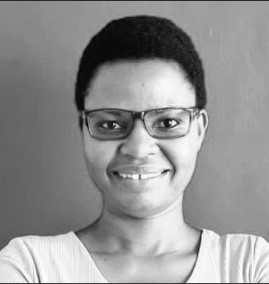
CHIEDZA HWATA
CHIEDZA HWATA (M’22) Chiedza Hwata is currently pursuing a PhD in Internet of Things at the
University of Rwanda, African Center of Excellence in IoT (ACEIoT), specializing in Embedded Computing Systems. She is
a PASET- RSIF scholar. From 2012-2013, she was a Teaching Assistant at Harare Institute of Technology and became a
lecturer from 2016 – 2021. She received a B. Tech in Computer Science from Harare Institute of Technology in 2011, an M.
Tech in Information Technology from SRM University, Chennai, Tamil Nadu in 2015. She is an author of 9 articles. Her
research interests are in Computer applications, Cloud Computing, Information Storage and Retrieval, Machine Learning..
.